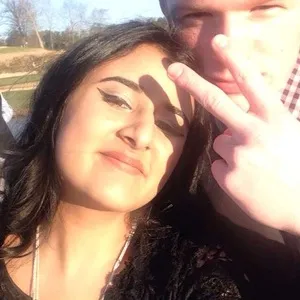Though many people understand the dynamics of eating kosher meat, not many people know the dynamics of eating halal meat. Like kosher meat, halal is similar in the sense that it relates to the way meat is prepared or butchered before being eaten. Halal meat, as defined by Halal Advocates, is specifically grazed to treat the animal properly, which is why it can be seen as a healthier cut of meat.
Since my family is Muslim, we should be eating a strictly halal diet. However, my mother is the only one who religiously eats a halal diet, but I did eat a halal-based diet for two years of my life, so eating halal for five days was a blast from the past.
According to Halal Advocates, to achieve a halal diet one must only eat meats such as goat, lamb, chicken, and beef that are halal certified. Fish does not have to be halal certified but other seafood such as lobster, crab, and oysters do, because they have anatomy different from other meats and are fished rather than hunted.
At the start of the week, I said goodbye to my delicious spicy chicken sandwich from Chick-fil-A, cheeseburgers, which were my favorite in the dining hall when options were limited, and lastly my beloved burritos.
Day One
On the first day, I ate at our campus dining hall. I started the day with a granola bar, because as other college students know, we rarely have time for a proper breakfast. For lunch, my mom had prepared a home-cooked meal of rice and kabobs, but I sadly devoured it so fast because I thought it would be my only chance at eating anything meat-based for five days.
For dinner, I almost reached for the chicken burritos that were being prepared and looked so tempting, but instead I picked up some meatless spaghetti and a whole wheat garlic bread roll. It was already was hard going halal, because while the spaghetti was great, I was still thinking long and hard about those chicken burritos.
Day Two

Being a college student can sometimes bring out my unhealthy side, and eating halal seemed bring that out in me as well, because I would stroll through a dining hall feeling as if there was nothing I could eat.
On the second day, though, I went to a different dining hall on campus and found a hidden gem in the vegetarian bar, which I usually avoid. Sitting there was a chipotle vegetable wrap with chips and liquid gold (better known as queso). While the wrap was definitely missing something (chicken), it was still balanced with chipotle sauce and seasoned veggies.
Day Three
On the third day, I had my daily granola bar and skipped lunch because of my jam-packed class schedule. For dinner, though, I took advantage of living in Atlanta and went on Postmates. Through the app, I found restaurants in the local area that provided halal choices. I chose Aladdin’s Mediterranean Grill in Emory and selected a chicken shawarma wrap and immediately dived in.
My stomach was definitely happy about finally having some meat in my diet. The chicken shawarma was absolutely fabulous, and it made it even better that I had been going halal for the week and finally had that protein fix I’d been craving.
Day Four
On the fourth day, I had gone through a tough day of math lectures and tests and decided to use UberEATS instead of Postmates to search around for a larger variety of restaurants. I found Paradise Biryani Pointe in Emory, which was also halal certified, and treated myself to chicken 65 and flavored rice. I realized midway through this experiment that halal choices are obtainable, even in the South.
Day Five

On the last day, I decided to go to Pauley’s Crepe Bar to (in the words of Donna Meagle) “treat myself” with smoked trout dip and a strawberry and Nutella crepe. The smoked trout dip satisfied my stomach, while the strawberries and Nutella crepe satisfied my heart.

While going through this process, I also dug up some research on the progress of halal meat becoming more obtainable across the country. In Georgia, we have restaurants like Bocado Burger, which uses halal beef for their burgers for “fresher meat.” Also, the grocery store chain Sprouts has started to supply halal lamb on their shelves.
I also found out that with the right steps, one can obtain halal meat in the Georgia State University’s dining halls as well. Halal may not be a well-known diet, but it is luckily starting to become more obtainable to those who practice it.
Throughout this process, I realized that going halal is definitely a difficult diet. It was more difficult going back to a halal-based diet because I had forgotten how hard it was to avoid non-halal certified food products such as burritos and burgers, but it was satisfying to know that I was putting a cleaner cut of meat into my body.


